Listen: Sharing Ideas and Solving Problems With Personal Knowledge
Longtime Guardian Glass employee Dean Stephany helped save his facility $65,000 a year by using knowledge gained through his experience at the plant to solve a manufacturing challenge.
Published 04-04-24
Submitted by Koch Industries
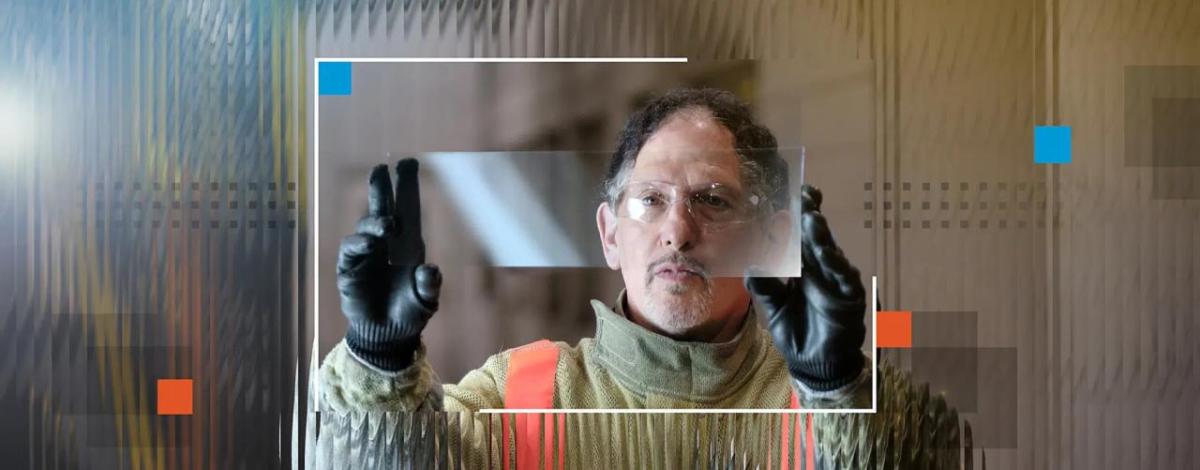
Working at the console that runs the glass coating line at the Guardian Glass manufacturing facility in Geneva, New York, is an intense job. It requires extreme focus and the ability to problem-solve in real time as giant sheets of glass make their way through the football-field-sized coating machine.
“One of the engineers we used to have said it reminded him of what you’d expect in an air traffic control tower,” says console operator Dean Stephany.
He’s worked at the Geneva Guardian plant for more than 20 years. That’s given him a lot of practical knowledge, which he recently used to help improve a part of the coating process and reduce the amount of defective glass produced. This is an example applying the principle of personal knowledge. While it takes an enormous team of talented engineers, operators and office staff working together to allow the plant to produce more than 200,000 tons of float glass a year, Dean’s actions show that personal knowledge can make a huge difference.
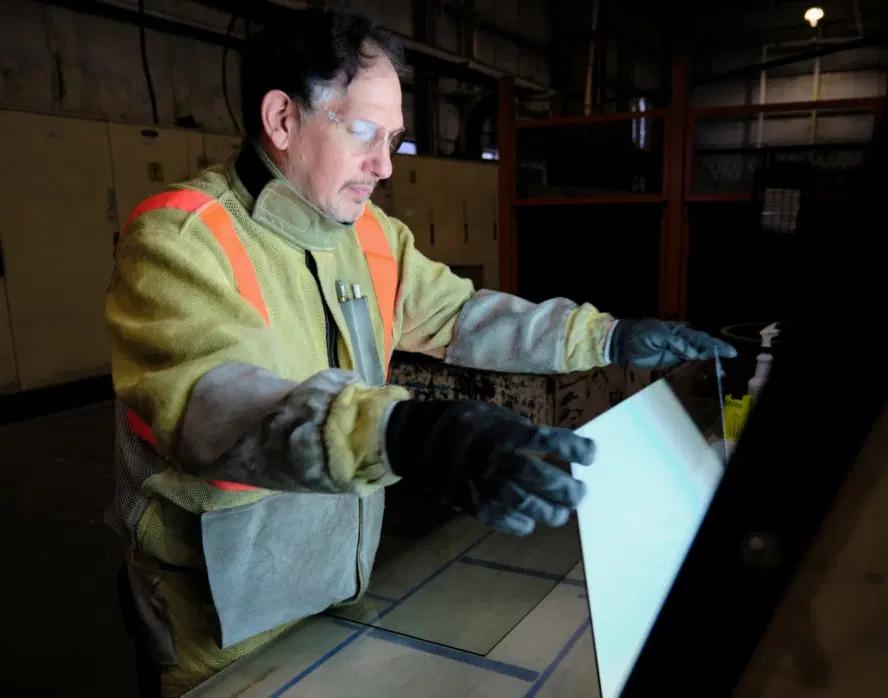
Fewer coatings, more debris
A few years ago, the engineers and operators on the coating line recognized there was a recurring quality problem every time the machine transitioned from one specific coating recipe to another.
Coater process engineer Nancy Bassett wasn’t exactly sure what was happening, but she had a hypothesis. ClimaGuard® 80/71 is a single silver coating and doesn’t use all the different materials the coater is capable of applying. Nancy believed when they shut off the chambers that contained material that didn’t need to be applied, the chambers would cool down. As they cooled, excess material that had built up on the walls and various other parts inside of the machine would begin to release and flake off onto the passing glass.
“[These flakes] basically form debris voids in the coating,” Nancy says. “This became a big problem after startup. Each time, we would lose a lot of glass to this debris.”
It could take as long as two hours for the debris from the unused parts of the coater to stop flaking off and ruining the glass.
That’s two hours of hearing the near-constant sound of shattering glass as defective pieces would crash and break into bins near the end of the production line.
The issue caused this specific coating to have some of the lowest yield numbers, or the amount of usable glass coming out at the end of the process versus what was put in, of any of the products they made.
Even though they had a pretty good idea of what was happening — unused chambers would cool, causing built-up material to flake off onto the glass — there wasn’t an easy or obvious solution.
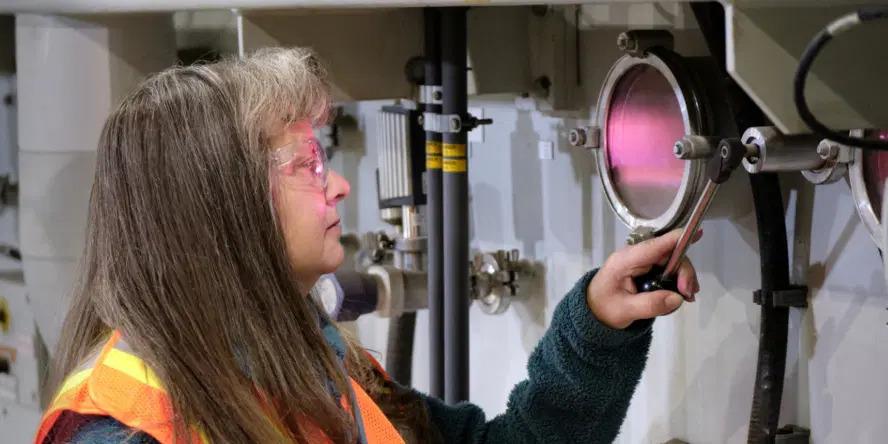
Practical knowledge, useful solutions
In his role as a console operator, Dean wanted to find the best way to produce glass. It pushed him to look for ways to reduce the amount of glass wasted due to debris. He had an idea — maybe if they could cool the unused chambers faster, they could reduce the amount of time it took for all the debris to fall off.
Dean wasn’t sure how to do that, though. The whole coating process is done in a near vacuum — no air pressure and very little oxygen — so installing fans would cause several other problems.
Then, Dean recalled another process he'd learned at the plant that might hold the solution. Sometimes, when there’s a mechanical problem or issue, glass has to stop inside of the coater. If it sits in there for too long, heat can build up in it, and the glass will warp. To prevent this, the team flows more argon gas, a basic and crucial part of the coating process already, into the chamber. Dean wondered if that could work here, too.
He took this idea to Nancy and Bryce Corsner, another one of the coating process managers.
“It sounded like a pretty viable idea,” Bryce says. “It’s not going to hurt anything, so let’s go ahead and give it a shot. See what happens and track the results.”
With the engineers on board and the idea approved, it was time to put it to the test.
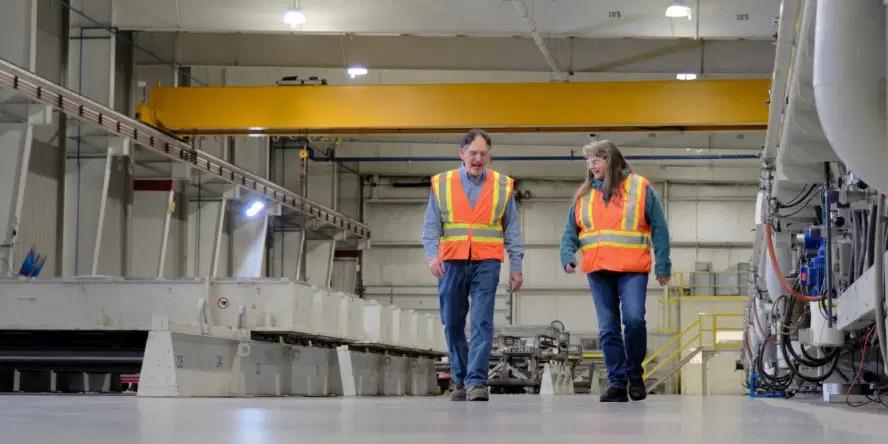
Dean wasn’t working the shift when the team first tried the new method. He says he expected the first sheets of glass that would come through would have a ton of debris on them, and it would validate his theory. But when he talked to Gabe Baker, the console operator who ran the experiment, he said that wasn’t the case. Dean froze, worrying it might not have worked.
Gabe said even though the first sheets weren’t covered in debris like Dean thought would happen, they ran with a fraction of the amount of loss that they usually saw. The time it took for debris to stop flaking off onto the glass after the transition had been reduced significantly.
Dean got the result he wanted, even if it didn’t happen exactly how he thought it would.
Nancy continued to run analysis and monitor what, if any, yield improvements they were seeing. She found that the amount of loss due to debris decreased by about three-quarters of a percent. That might seem insignificant, but at this scale, even a small improvement can result in major gains.
“Having even a half to 1% yield improvement on it saves us more than 100,000 square feet of glass a year,” she says. “We’ve been doing this for two years, so we’re getting close to a quarter of a million square feet of glass saved by this small process.”
Dean says he’s proud his knowledge and experience contributed to improving the process. He says it’s empowering to know the engineers and supervisors are so open to receiving ideas from people, no matter where they work in the facility.
“From my perspective, not being a chemical engineer, it allowed me to look for a simple solution first because that's all that was open to me,” he says.
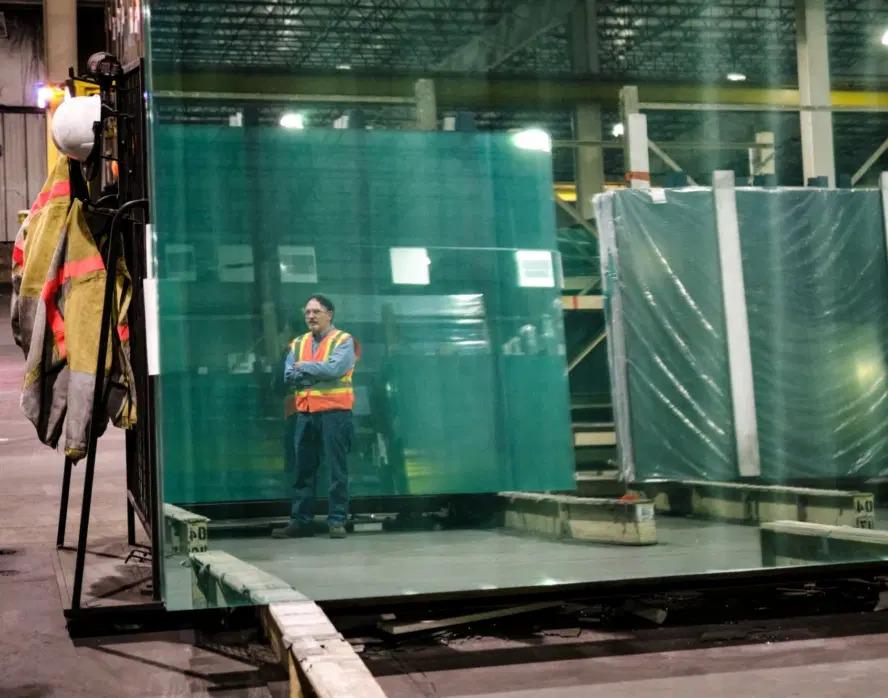
Dean’s background brought different knowledge to the table — a different way of looking at the problem. Exploring the hunches of employees with relevant and practical knowledge can lead to discoveries and better results.
“There's no harm in trying something,” Bryce says. “Assuming you make sure you're not endangering the process or doing anything unsafe, then sure, why not? It doesn't work – OK, fine. I know one more way it doesn't work.”
Dean’s idea is estimated to save his facility about $65,000 a year. All because he wanted to make a difference, wasn’t afraid to share his ideas and was part of a team that valued his personal knowledge.
The team at Geneva has shared their results and process changes with other Guardian facilities. Now, they say it’s time to move on to the next potential improvement.
“You always want to be continuously improving your process, even if you have to rip it down and start over from scratch,” Nancy says. “OK, we conquered this one. What's our next biggest problem?”
Listen to the podcast here.
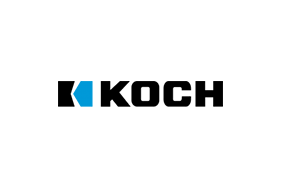
Koch Industries
Koch Industries
Creating value. Transforming life.
Our life’s work is to help people improve their lives by making and innovating products and services our customers value. Our focus is on delivering mutual benefit: Win-win outcomes that make life better for customers and employees alike.
Based in Wichita, Kansas, Koch Industries is one of the largest private companies in America. A diverse set of businesses and industries across the world, we work together to keep improving and exploring new ways to make life even better.
Koch companies are involved in manufacturing, agriculture, pulp and paper, packaging, consumer products, building materials, glass, automotive components, refining, renewable energy, chemicals and polymers, electronics, enterprise software, data analytics, medical products, engineered technology, project services, recycling, supply chain and logistics, global commodities trading, and investments. Since 2003, Koch companies have invested more than $150 billion in growth and improvements. With a presence in about 60 countries, Koch companies employ more than 120,000 people worldwide, with about half of those in the United States.
Stewardship in all we do.
Our approach to Environmental, Social and Corporate Governance (ESG) is different than most. We believe in people and seek a system of equal rights and mutual benefit where individuals succeed by helping others succeed – and where people are empowered to improve their lives and their communities. It’s why we focus on empowering individuals to improve their lives and communities through bottom-up solutions rather than top-down imperatives.
Environmental Stewardship
Consuming fewer resources, minimizing waste and constantly innovating to improve our manufacturing processes and performance is essential to the way we do business – benefiting our customers, employees, investors, communities and planet.
Five environmental stewardship priorities.
With more than 300 manufacturing sites across the United States – and about 100 more globally – we’re one of America’s largest manufacturers. Every day, across those sites, we strive to create more value, using fewer resources than the day before. We do it through constant improvement and innovation – both in the products we make and how we make them, and by managing our resources in a way that benefits our customers, employees, partners, community members and society.
- Innovation
- Energy Efficiency
- Air Quality
- Water
- Responsible Resource Management
Social Stewardship
Philanthropy. Health and safety. Diversity and inclusion. Meaningful, rewarding careers and community outreach. These are just some of the vital priorities of social stewardship that empower each of our employees to develop, contribute, self-actualize and create value for the world while supporting communities in which we live.
Governance
Our management framework, Principle Based Management™, is based on proven principles of human progress and a deep appreciation for the dignity of every individual. Our private ownership, shared Vision, Values, compliance standards and oversight all help us focus on long-term value creation.
More from Koch Industries

